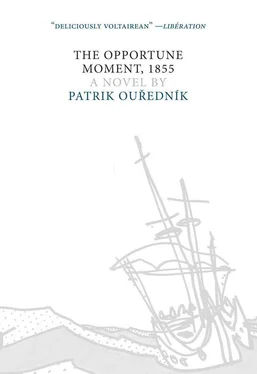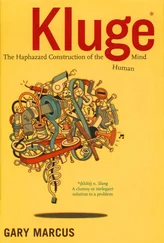Mrs. Crisson passed away. Mr. Crisson wept and was inconsolable.
It’s strange how people’s fates collide. Before we left, the only person I really knew was Amilcare, and Cursio and Egizio remotely. And Zeffirino, who published French for Everyone in serial form and wrote articles for Friend of Humanity . I used to copy them and give them to Amilcare to read. Where did all these people come from? How could people in Germany have found out about the Older Brother project? I asked Agottani about it, he said he hadn’t a clue.
Most of the Italians are from Milan and the vicinity, but not all. Agottani is from Naples, but then lived in the north. Apart from a few exceptions, none of them knew each other.
The most organized are the French. A good half of them hail from Savoy and have known each other for some time. The others are from Paris. They used to organize strikes and marches. Some of them have been in prison.
The French who call themselves Egalitarians use a different calendar. Jean-Loup explained to me that according to this calendar, the new year begins in September and the months have different names: Wine-maker, Fog-maker, Frost-maker, Snow-maker, Rain-maker, Wind-maker, Sprout-maker, Blossom-maker, Meadow-maker, Crop-maker, Heat-maker, and Fruit-maker. Today is the 20th of Wind-maker.
Some of us tried to talk Decio into running for the presidium, but Decio said that he wants nothing to do with communists like Zeffirino and Gorand, that communism yokes man with the burden of all that isn’t allowed. He said he had nothing against discipline, but discipline has to be the fruit of freedom. He said he was for anarchy and socialism, because anarchy guarantees freedom and socialism a dignified life, and you can’t separate the two. Giacomo said that communism and anarchy aren’t always completely at odds, it depends on what you can adapt from communism and what you can’t, and that he shouldn’t be so strict. And that the most important thing is unity, without that we can achieve nothing.
We sailed across the equator and entered the South Seas. The captain had a pig slaughtered, and anyone who has money can buy a piece. The Germans sent a delegation to the Italians and the French, because some of them are completely out of supplies. They’re asking us to show solidarity and give them some of our food. The voyage should last another two or three weeks.
I wrote a letter to my mother, actually to Padre Francisco in Brescia, who will deliver it and read it to her. In it I wrote about Decio, Elisabetta, the nations of Europe, human races, and flying fish. It’s my third letter since the day I left Brescia. I’ll send it as soon as we land in Rio de Janeiro.
In the end, Zeffirino was the only one to submit his name for the presidium. He tried to persuade Gorand to do it, but Gorand refused.
Lecoq, Desmarie, and Durrieu issued a joint proclamation saying that due to a lack of candidates, elections to the presidium would be postponed and anyone interested could still sign up today or tomorrow. If no one signs up, the five oldest settlers will be appointed to the presidium.
This afternoon we spotted a raft in the waves. It was built out of two ten-or twelve-meter-long beams and some transom beams. The captain thinks the raft came from a ship that caught fire. The castaways were probably washed away by the waves. This evening the captain called the crew and passengers together to read us the list of anti-fire measures and warned us to pay more attention to them. He also asked the passengers to fill the empty casks of drinking water with seawater. The crew isn’t large enough to be able to do the job, two more sailors are sick.
The Germans had a child, a baby girl. Her name is Hoffnung.
This morning we filled the casks, Italians, French, Germans, both Americans, and the five Slavs, who aren’t Serbs, as Decio thought, but Hungarians. We made a chain and handed pails down the line. Some of the Germans are so lazy that after a few pails they walk away to rest and smoke a pipe and send their wives and daughters to take their place.
Lecoq, Desmarie, and Durrieu made an announcement that candidates could still sign up tomorrow.
Samba scalded his hand.
This afternoon an argument broke out between the shipmaster and a group of Germans who wanted to build a fire in the hold so they could heat their food. Finally the shipmaster called in the captain, and he threatened to tie up the Germans.
Lecoq, Desmarie, and Durrieu issued a proclamation saying that if no one had signed up by noontime tomorrow, they would ask every settler over the age of forty to come and tell them their date of birth.
About a half hour before noon, all the Egalitarians came to Durrieu and announced their candidacy for the presidium. There are twenty-two of them, with Zeffirino that makes twenty-three candidates. Zeffirino spent all afternoon circulating among the Italians, trying to persuade us to vote for him, since otherwise the whole presidium will be French. He even went to Decio, but Decio said that for him the deciding factor wasn’t whether the person was Italian or French, but whether he had brains in his head or mush. Elisabetta said she was going to vote for Zeffirino. Gorand and the other Frenchmen said they weren’t going to vote at all.
Hoffnung has nothing to drink, her mother Katharina has no milk, she’s weak and thin. From our shared supplies we set aside the last dates, potatoes, and smoked meat, but she throws everything up right away. Finally, the first officer, who also serves as ship doctor, went below decks to see her, but he barely looked at her, he didn’t even raise her eyelids. He just shrugged his shoulders and said there was no remedy for undernourishment, and recommended that she spend as much time as possible on deck in the fresh air. Luigi and Amilcare, along with two of the Germans, took apart one of the bulkheads, asked for a piece of canvas from the shipmaster and made a stretcher out of it. Katharina has two other children as well, both little girls, one three, the other five. Her husband, Helmuth, is a tanner by trade.
Zeffirino called off his candidacy in the end. Only thirty-five people turned out for the elections. The Egalitarians called a meeting for tomorrow. During the night a storm broke out, the masts creaked and the lights at the top of the masts went out. In the morning there were dead birds floating in the waves. The Germans tried to scoop them up, but didn’t have much luck.
Elisabetta goes to French class every day and knows several sentences now: My name is Elisabetta, I speak a little French, French is the most beautiful language in the world , and Men are born and remain free and have equal rights . In the evening we go over the sentences together and I correct her and teach her new ones. She mixes up the genders, and so far she speaks only in the present tense: Yesterday I eat potatoes, When I’m little, I have more long hair , and so on.
Fewer people came to the meeting than usual. Zeffirino and Gorand didn’t come. Fifteen or twenty of the French were missing, and even more of the Germans. There were more Italians than anyone else. The Slavs came for the first time, after beginning to speak German all of a sudden out of nowhere when they were helping us fill the casks. The names of the Egalitarians elected were Allegret (Jean and Roland), Penot, Roche, and Dumas. They’re all young and wear their hair long, a little like aristocrats and some of the anarchists. Jean and Roland are twins.
Читать дальше












